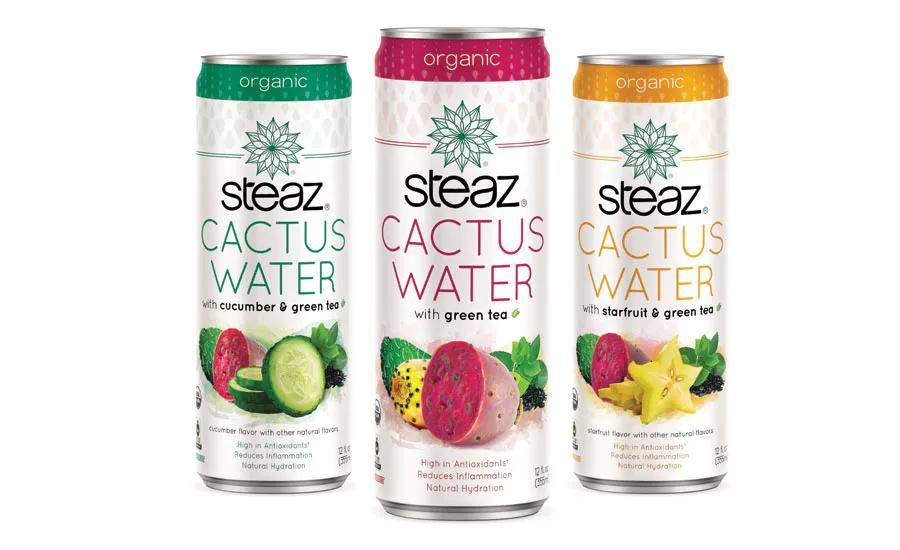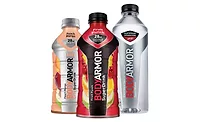Strong growth predicted for coconut water, other plant waters
Flavor options increase throughout plant waters

Consumers’ desire for healthy hydration recently helped bottled water ascend to the No. 1 beverage sold in the United States on a volume basis; however, healthy hydration also has given rise to plant-based waters, which offer nutritional benefits beyond hydration.
“While health and wellness is cited by consumers, often they are swayed by other factors such as lifestyle branding,” says Roger Dilworth, senior analyst with New York-based Beverage Marketing Corporation (BMC). “Nevertheless, health and wellness should slowly make inroads into real consumer purchasing behavior. Plant waters have specific nutritional benefits that may appeal to consumers. These people may also be attracted to the simple ingredient lists and to hydrators that offer a little more flavor, or at least a variation, from plain bottled waters.”
In an April report titled “Coconut and Other Plant Waters: An Introduction to the Category,” Chicago-based Euromonitor International also highlights the role health and wellness is playing in fueling these products.
“In a global soft drinks industry that has struggled for high value, healthy category growth opportunities of late, coconut and other plant waters represent a bright spot of opportunity — growing by 20 percent in volume terms in 2016,” the report states.
BMC’s Dilworth notes similar wholesale performance, with plant waters up 17 percent in 2016 for a total of $493.4 million in sales.
Euromonitor’s report also showcases that the United States is the major market for packaged coconut waters. “Despite lacking such a tradition of coconut water consumption, the U.S. has emerged as the No. 1 player in the category with 196 million liters in total volume in 2016,” it states.
Both BMC’s Dilworth and Euromonitor highlight coconut water as the top-performer within plant-based waters. “The coconut waters are impacting the new age beverage market by helping to expand the idea of healthy hydration that now includes alkaline waters and more ‘natural’ sports drinks like BodyArmor,” Dilworth explains. “The maple, birch [and] cactus waters are not having much of an impact yet, not even on the coconut water segment. The coconut water segment and its aseptic packaging, of course, paved the way for these more exotic plant waters to find any traction in the marketplace.”
Euromonitor also notes the influence that coconut water has had on the emergence of other plant-based waters. “As coconut water continues to develop, it is important to maintain the premium reputation and added value of the category,” the report states. “Flavored and added-sugar products entering conventional channels may lead natural consumers to seek alternative products in super-premium, unflavored water or alternative plant-based/root waters.”
The report expands on the coconut water and plant water connection by noting the innovative spirit that plant waters have demonstrated. “While coconut water dominates the global category for packaged plant and root waters, the fringes of the category have been a major area of new product innovation and experimentation,” it states. “A wide range of plant-based drinks — from packaged maple, birch, watermelon and cactus — occupy a niche but high-value and growing corner of the market with interest from affluent health-and-wellness consumers in natural food and beverage retail channels.”
Although creativity has been associated with emerging plant waters, the use of flavors varies from brand to brand and even segment to segment, experts note.
BMC’s Dilworth says that market leaders should be able to pinpoint the best-selling flavors for their brands, but notes that an unflavored/original varietal is commonplace throughout the market.
“It seems like original flavors are the biggest, even in tree waters,” he says. “Although some brands like Treo Birch Water are experimenting with a more flavor-centric approach.”
Last fall, Harrison, N.Y.-based Treo Brands unveiled its Treo Organic Birch Water Infusion in four varietals: Blueberry, Coconut Pineapple, Peach Mango and Strawberry.
Doylestown, Pa.-based The Healthy Beverage Co. and its Steaz brand also took the flavor-first approach when it released Steaz Cactus Water last spring. The ready-to-drink beverage combines prickly pear juice with organic green tea and natural flavors and is sweetened with stevia.
Whether plant-water brands hold true to original/unflavored options or explore more flavor innovations, analysts are expecting this group of beverages to continue growing.
“The category is expected to grow at about a 13 percent [compound annual growth rate] to nearly $900 million wholesale in 2021,” BMC’s Dilworth says. “The non-coconut water portion of this would be a little over $100 million. It’s difficult to forecast any special catalysts that would propel the category to the stratosphere, but the general theme of health and wellness, clean labels and healthy hydration should sustain the category to double-digit annual growth nonetheless.” BI
Looking for a reprint of this article?
From high-res PDFs to custom plaques, order your copy today!






